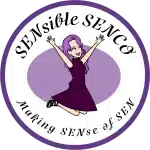Cognition & Learning Resources
Created and curated by our 12,000+ amazing SENCOs. This is your library of tried and trusted resources. Take your SENCO knowledge to the next level and become a go-to expert. Find peace of mind knowing you have reliable resources at your fingertips.
Specific Learning Difficulties (SpLD)
A specific learning difficulty (SpLD) means that someone has a difference or difficulty with one or more certain parts of learning. Having a SpLD does not mean that children and young people cannot achieve and succeed in learning.
Dyslexia
Dyscalculia
Dyscalculia is a learning disorder that affects a person’s ability to do math. Much like dyslexia disrupts areas of the brain related to reading, dyscalculia affects brain areas that handle math- and number-related skills and understanding.
Dyspraxia
Developmental co-ordination disorder (DCD), also known as dyspraxia, is a condition affecting physical co-ordination. It causes a child to perform less well than expected in daily activities for their age, and appear to move clumsily.
Dysgraphia
Dysgraphia is a learning disability of written expression, which affects the ability to write, primarily handwriting, but also coherence. It is a specific learning disability (SLD) as well as a transcription disability, meaning that it is a writing disorder associated with impaired handwriting, orthographic coding and finger sequencing (the movement of muscles required to write).
Moderate Learning Difficulties (MLD)
People with a moderate learning disability are likely to have some language skills that mean they can communicate about their day to day needs and wishes. People may need some support with caring for themselves, but many will be able to carry out day to day tasks with support.
What is Cognition and Learning?
SpLD, Dyslexia, Dyscalculia, Dyspraxia, MLD.
The vast majority of children with SLD (Severe Learning Difficulties) or PMLD (Profound and Multiple Learning Difficulties) are more likely to be educated in Special schools.
Cognitions and learning difficulties make it difficult for children to keep up in most, if not all, areas of the curriculum. Many face challenges in developing basic literacy and numeracy skills and often they experience struggles with long and short term memory function too.
Some children may struggle not just with their academic skills but with their all-round development; for example motor skills (catching a ball or manipulating a pencil) and organisation. Avoidance techniques might be employed and as they get older any gaps between the child and their peers begin to widen further.
How do I access the SEN Resources?
If you can see this page, then you’ve logged in and are a member of the community, welcome and thank you!
Just a quick reminder that the resources on the following section are probably copyrighted, so please do not share them with anyone, use them in your school to help your pupils, and if anyone asks or wants a copy, direct them to the website. We are all for sharing the wealth, but I’m sure you’ll know there are people out there that will pinch stuff, charge people and hand it out. It’s not great when you can get it for free…
Anyway, enjoy the SENCO resources for Cognition and Learning. We will be adding more over time, so make sure to check back regularly to see what’s new!


